Related Research Articles

"Deșteaptă-te, române!" is the national anthem of Romania and former national anthem of Moldova.
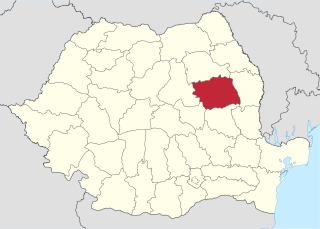
Bacău County is a county (județ) of Romania, in Western Moldavia, with its capital city at Bacău. It has one commune, Ghimeș-Făget, in Transylvania.

Vasile Tarlev is a Moldovan politician.
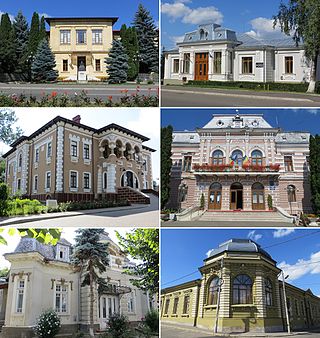
Fălticeni is a town in Suceava County, northeastern Romania. It is situated in the historical region of Western Moldavia. Fălticeni is the second largest urban settlement in the county, with a population of 24,619 inhabitants, according to the 2011 census. It was declared a municipality in 1995, along with two other cities in Suceava County: Rădăuți and Câmpulung Moldovenesc.
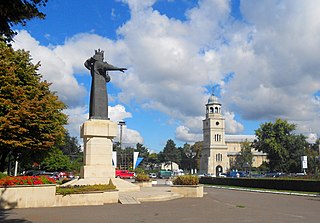
Bălți is a city in Moldova. It is the second largest city in terms of population, area and economic importance, after Chișinău. The city is one of the five Moldovan municipalities. Sometimes also called "the northern capital", it is a major industrial, cultural and commercial centre and transportation hub in the north of the country. It is situated 127 kilometres (79 mi) north of the capital Chișinău, and is located on the river Răut, a tributary of the Dniester, on a hilly landscape in the Bălți steppe.
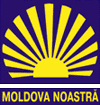
The Our Moldova Alliance was a social-liberal political party in Moldova led by Serafim Urechean, former mayor of Chișinău. It merged into the Liberal Democratic Party of Moldova (PLDM) during April 2011.
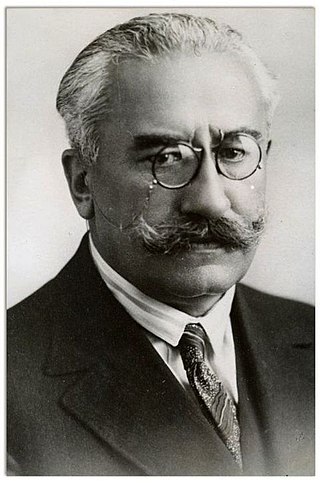
Alexandru Vaida-Voevod or Vaida-Voievod was an Austro-Hungarian-born Romanian politician who was a supporter and promoter of the union of Transylvania with the Romanian Old Kingdom. He later served as 28th Prime Minister of Romania.

Eforie is a town and a holiday resort on the Black Sea shore, in Constanța County, Northern Dobruja, Romania. It is located about 14 kilometers south of Constanța. Techirghiol Lake lies nearby.
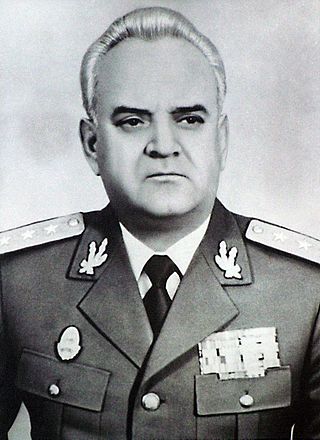
Vasile Milea was a Romanian politician and military general who was Nicolae Ceaușescu's Minister of Defence during the Romanian Revolution of 1989 and was involved in the reprisal phase of the Revolution that caused the deaths of 162 people.

Sîngerei is a city in Moldova and the seat of Sîngerei District. One village is administered by the city, Vrănești.

Chinteni is a commune in Cluj County, Transylvania, Romania. It is composed of nine villages: Chinteni, Deușu (Diós), Feiurdeni (Fejérd), Măcicașu (Magyarmacskás), Pădureni, Săliștea Veche (Szellőcskevölgy), Sânmărtin (Szentmártonmacskás), Satu Lung (Hosszúmacskás) and Vechea (Bodonkút).
The male name Vasile is of Greek origin and means "King". Vasile is a male Romanian given name or a surname. It is equivalent to the English name Basil. It is also used by the Megleno-Romanians.

The 1942 New York state election was held on November 3, 1942, to elect the governor, the lieutenant governor, the state comptroller, the attorney general and two U.S. Representatives At-large, as well as all members of the New York State Assembly and the New York State Senate.

Parliamentary elections were held in the Moldavian SSR in February and March 1990 to elect the 380 members of the Supreme Soviet. They were the first and only free elections to the Supreme Soviet of the MSSR, and although the Communist Party of Moldova was the only registered party allowed to contest the election, opposition candidates were allowed to run as independents. Together with affiliated groups, the Popular Front of Moldova won a landslide victory. Candidates who were openly supporters of the Popular Front won about 27% of seats; together with moderate Communists, mainly from rural districts, they commanded a majority.
"Vasile Lupu" High School Group was one of the first organized anti-Soviet groups in Bessarabia in the wake of its occupation by the Soviet Union on June 28, 1940.
Vasile Ursu is an engineer and is a Moldovan politician, the MP at the first Parliament of the Republic of Moldova in 1990-1994, acting interim general mayor of Chișinău in 2005-2007 and minister of transport and road management for 2007-2008. In 2008-2009 he held the position of Deputy Minister of Construction and Territory Development.
Vasile Bahnaru is a philologist from the Republic of Moldova.
Sabia Dreptății was one of the organized anti-Soviet groups in Bălți, Bessarabia.
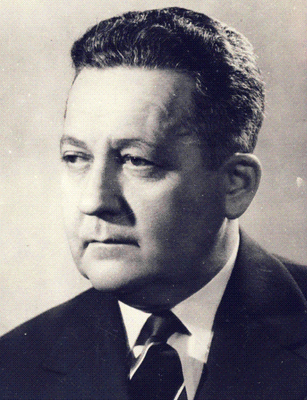
Leonte Răutu was a Bessarabian-born Romanian communist activist and propagandist. He was chief ideologist of the Romanian Communist Party during the rule of Gheorghe Gheorghiu-Dej, and one of his country's few high-ranking communists to have studied Marxism from the source. His adventurous youth, with two prison terms served for illegal political activity, culminated in his self-exile to the Soviet Union, where he spent the larger part of World War II. Specializing in agitprop and becoming friends with communist militant Ana Pauker, Răutu made his way back to Romania during the communization process of the late 1940s, and became a feared potentate of the Romanian communist regime. As head of the Communist Party's new Agitprop Section, he devised some of the most controversial cultural policies, and managed to survive Pauker's downfall in 1952.

Nicolae Bălan was an Austro-Hungarian-born Romanian cleric, a metropolitan bishop of the Romanian Orthodox Church. The son of a priest, he graduated from Czernowitz University and taught theology at Sibiu from 1905 to 1920. That year, he became Metropolitan of Transylvania, an office he would hold for the rest of his life. In the 1930s, he was an open supporter of the Iron Guard. In 1942, during the Holocaust, he intervened in Bucharest against the planned deportation of Romanian Jews from the Regat, Southern Transylvania and the Banat to the Nazi extermination camps. In 1948, after a communist regime was established, he publicly assisted the new authorities in their effort to disband the Romanian Greek-Catholic Church.